Getting Skilled and Diverse Governors on Boards
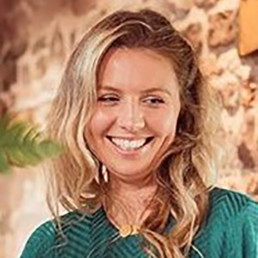
Written by Lydia Bower
Marketing and Communications Manager at education charity Governors for Schools.
The lack of diversity is, and has been for a long time, a problem on school governing boards.
A diverse governing board is a stronger board, reflecting school communities and the wider country. In 2020, over 30% of our volunteers were from BAME backgrounds, and over 65% were under 45, not to mention having different socio-economic backgrounds, and diverse skills, life experiences, and perspectives.
But these stats aren’t representative of most school boards. In 2020, the NGA’s annual governance survey found that 94% of governors and trustees who were surveyed identified as white. Only 1% of respondents identified as Black/ African/Caribbean/Black British, 2% identified as Asian/Asian British, and 1% identified as mixed or being of multiple ethnic groups.
The same survey found that only 1 in 10 governors and trustees were under 40 (11%), and only 2% were under 30. Boards need people of all ages and backgrounds to challenge group think and ensure robust decision making. Younger governors also have a perspective on education older governors simply can’t replicate. While older governors undoubtedly bring valuable skills and experience to the board, they don’t have recent experience of the education system, or know what it’s like to be young now.
We’ve created a quality mark for schools to use to show their commitment to finding skilled and diverse governors through an independent organisation. Displaying the mark is an assurance to all those in the school community that the board values diverse governance.
The survey figures are not reflective of the schools governors serve. The Department for Education’s school data for 2020 shows that in primary schools, 33.9% of pupils are of minority ethnic backgrounds. In secondary schools, 32.3% of pupils are of minority ethnic backgrounds. Of course, these figures will vary in different parts of the country, but the overall picture is one of governing boards failing to represent the communities they serve.
Boards that register vacancies with us have a higher chance of finding a new governor from a diverse background – in terms of both ethnicity and age. However, we understand that for many schools, while finding governors from diverse backgrounds is important, they also have a number of vacancies that need filling. Schools with more than one vacancy risk being left without the skills needed to run effectively.
The quality mark is still a useful tool for schools who find recruiting new governors a challenge. It shows that they understand the need for diverse governance, and have taken steps to address it.
In areas that aren’t very ethnically diverse, finding governors from BAME backgrounds can naturally be more difficult. However, the changes we saw in 2020, specifically the move to virtual governance, has opened up the possibility of having remote governors join boards. Although we expect to see governing boards resume face to face meetings in the next academic year, schools have had to adapt quickly to virtual meetings. This new way of meeting has led to an increase in the number of schools now considering remote governance and inviting those who don’t live locally to join the board. It’s an opportunity for boards to get the perspective and experience they need, and opens up hard-to-reach vacancies to a wider pool of volunteers.
Our webinar panel discussion in September 2020 discussed how to increase diversity on governing boards. The webinar featured a panel of educationalists and governance specialists talking about the steps boards can take to improve their diversity, and a key takeaway was not relying on personal contacts as this often results in recruiting people with similar backgrounds and experiences. By adding the quality mark to their website, schools can demonstrate their commitment to finding governors who can bring the skills, expertise, and diverse perspectives boards need to thrive.
You can read a summary of the information shared, and watch the webinar recording.
Has your school registered vacancies with Governors for Schools? Download the quality mark and show your school’s commitment to skilled and diverse governance.
Are you looking for new governors and want to prioritise finding volunteers who bring some diversity to the board? Register your governor vacancies with us online and we’ll search for a volunteer who best matches your requirements.
The False Flag Flying of ‘No Institutional Racism’
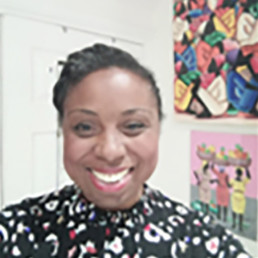
Written by Rachel Clarke
Working with many leaders to improve schools, Rachel is a "passionate, dedicated and inspirational educator, who strives for success with students and educators".
The absence of any acknowledgement of the existence of institutional racism in the UK education system, is a sad indictment of these times. In the context of George Floyd’s trial, the Oprah interview with Harry and Meghan and the glaring difference in response to Sarah Everard’s murder compared to Bibaa Henry and Nicole Smallman’s, much of the nation has been discussing race and the existence of racism. It felt as if education was slowly waking up to the systemic racism that exists within it. To then hear the outcome of this report, feels as though the conversation is firmly ‘off’ the agenda now.
The meritocratic framing of how well ethnic minorities achieve, makes no reference that where this is true, this is in spite of the racism that exists, not because it doesn’t exist at all. The ‘well if you have families with high aspirations, children will achieve’ sentiment is firstly not comprehensive enough and secondly, echoes the long held belief that it’s the fault of the individual and no responsibility needs to be taken by the institution to ensure all children achieve their potential.
Then we have those who are of Black Caribbean heritage, who appear to have outcomes that start off quite strong (68%) at the end of EYFS, then plummet to 26% at GCSE. The high exclusions are referenced, as is the need for more ‘diversity’ training to be on ITT programmes. However the report fails to unpick the link between individual racism, institutional racism and structural racism that exists that facilitates these statistics. The silence on this is shameful. Yes, wider factors do affect outcomes of children and young people but it is no coincidence that the group whose ethnicity is still framed around negative 17th century hierarchies of race, are the ones being over-represented in negative statistics.
With a workforce of approximately 90% from a White British background, our education system has a duty to ensure that biased views/opinions aren’t given the opportunity to thrive, but are deliberately challenged, so all children achieve their potential. Racism is not just a one off act of violence/aggression but more often, is the drip, drip, drip effect of racial action over time that has to be explored as being central to these poor outcomes.
Despite the report stating that “if there is racial bias within schools or the teaching profession, it has limited effect …”, it is clear that we have to change our approach if we genuinely have a desire to have an education system that meets the needs of all. Now is the time to educate the educators to start the hard work of challenging racism.
The Power of Multiple Perspectives

Written by Paulina Tervo
Co-Founder and Co-CEO at Lyfta; an immersive learning platform for educators.Her background is in documentary filmmaking and web production.
I’m holding a heavy camera in my arms, which are shaking from the sheer weight. It’s 35 degrees; hot, humid and I’m standing in the middle of the biggest slum in Dhaka, Bangladesh, filming a UK A-list celebrity who is crying and talking to the camera. We have just visited several homes in the slum, where we have met young mothers, who are still children themselves, who live in abject poverty and whose children are malnourished. My brief for the day has been to make the A-list celebrity cry in front of the camera, because that’s what will make people donate to the charity that I am doing the work for. I start crying myself, because of the absolutely devastating stories of hopelessness that we are telling, and because I have been told by the local staff that the families we filmed are not beneficiaries of their aid, and therefore will not be helped.
What this narrative was doing was problematic for many reasons. Not least because it reinforced the white saviour narrative, portrayed the poor as a helpless one-dimensional group who are only going to be saved by our charity. It also showed only one side of the story. What we didn’t tell was how the young mother might have been part of a women entrepreneur’s group, saving together to launch a business, or how she is a resilient and resourceful person. We didn’t humanise her, we victimised her, objectified her even.
I felt disgusted and embarrassed for being there. It was the first time I had ever taken an assignment like this, and it was absolutely going to be my last. It was clear to me that what we were doing would not bring about sustainable change. I realised that I wanted to tell stories that were empowering, and even if they had tragedy or difficulties in them, they would humanise and have hope.
A very different story
Fast forward 5 years, I am filming another young mother, this time in Helsinki, Finland. This is where I come from.
Habiba was a child when she came to Finland in the early nineties as a refugee from Somalia. To give you some background, in 2018 over 50% of Somalis in Finland were unemployed, and when it comes to women, that figure was even higher. Many Somali women become nurses or work in other caring professions. When Habiba told me that as a teenager she had been told by a school counsellor that she would be best off becoming a nurse, as that’s what most other Somali women do, she decided that wasn’t going to be her route. Her interest was in citizen activism and politics.
Habiba always knew she wanted her own career while also fulfilling her duty as a mum. By her mid-twenties, she was the proud mother of 7 children when the relationship with her husband broke down. Committed to her aims towards social justice and advocacy for others, she chose to become a city councillor and started to work for her community, to help young people who faced institutional racism which put them at risk of marginalisation. It hasn’t been easy for Habiba to do what she is doing, she faces constant hate speech and racial abuse.
The story we ended up telling about Habiba, like the other stories on the Lyfta platform, is emotionally powerful, yet hopeful, inspiring and empowering. Habiba is an incredibly resilient and positive person, reflective and committed and provides a powerful role model for us all. She makes us see that despite adversities, we can still follow our dreams.
Habiba’s story has now been seen by thousands of children and teachers in the UK and Finland. For many people, she is an incredible role model, and for others, meeting her has given them a window into someone’s life, whom they might otherwise never have met. They would have heard a story that showed them a new perspective.
Habiba’s story is one of many human stories featured in Lyfta’s learning environments called storyworlds. At Lyfta our mission is to share beautiful human stories from around the world to better understand ourselves, each other and our future – as individuals, as communities and as an entire planet.
Storytellers and media outlets have a big responsibility as to how we tell stories, because stories shape our world and shape perspectives and attitudes. So it really matters how they are told. The world is nuanced, complex and beautiful and there are a million ways of telling someone’s story. At Lyfta, we choose to tell stories that humanise people.
What is Lyfta?
Lyfta is an award-winning teaching platform made up of interactive 360° spaces and soundscapes of real homes, workplaces and environments from around the world. Students are invited to explore, unlock rich media content, and get to know real people through powerful and inspiring short films.
The resources are ideal for teaching a range of subjects, skills and values and the UN SDGs. The ready-made lesson and assembly plans cover a range of vital themes such as sustainability, wellbeing, human diversity and compassion, and are ideal for nurturing skills and values such as empathy, resilience, and critical thinking.
Lyfta offers free training and trial access – find out more at www.lyfta.com/training
Journey to the Job
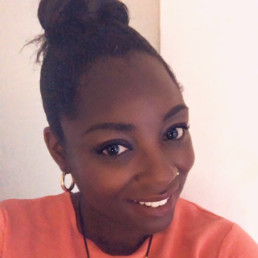
Written by Azuraye Williams
Year 6 Teacher, Science, PE, Diversity and Inclusion Lead.
Initial Thoughts
It can be so hard looking for a new job as a black or brown teacher. Your first thought might be to look at the teaching staff of the school and see if there are any other people of colour working there. With the recent statistics that have been made wide news, you will understand that it can sometimes be quite hard to find such a place.
Once you have searched, you may have a few of the following questions to think about:
- Is the school ‘ready’ to have a black or brown teacher there?
- Am I ready to work somewhere that I will be ‘culturally alone’?
- How will the school deal with anything towards race, identity, racism and culture?
- How will they respond to me if I talk about something I feel uncomfortable with?
- Will the school support my progression or will I just be there to ‘tick a box’?
These questions will be flowing through the minds of people of colour before they even think about if they really want to apply for the job. Sometimes this process alone is enough to talk you out of even applying.
The Process
The next thought is the writing process. You may worry that to even be in with a chance of an interview your letter has to stand out even more – especially if your name is of a cultural background- as the schools may have already shown that it does not openly employ black or brown people.
Then you think about the interview with thoughts such as:
How can I seem as though I can ‘fit in’ to the school, while also wanting to embrace my own true self?
Or,
Will I see someone who looks like me on the interview panel?
What Now
Now although I say this, I am not speaking for all black and brown people or indeed about every interview. I just wanted to speak my own truth to share experiences and conversations I have had with other black and brown educators.
The reason I say this is because although it is important to teach the children about different people and cultures, to truly bring the teaching world alight for people of colour, it starts at the top. Employing people of colour and actually listening to them when they make suggestions or point out something in school rather than just feeling it is ‘the right thing to do’ to tick a box or ‘look good’ from the outside.
It isn’t enough for schools to put a plaque up and a heading on their website to say they are anti-racist if their whole culture and ethos shows the opposite. Employing and learning about other cultures is one thing but truly allowing eyes, hearts and minds to be challenged in their biases and allowing the discomfort this may bring to elicit deeper change is what is really needed in schools.
So many black and brown teachers enter into this system as enthusiastic, knowledgeable and hard working individuals and yet they leave the profession years later being down-trodden, overlooked, misrepresented and sometimes (more often than many would like to say) mistreated.
Remember, this is a whole school approach and it is everyone’s responsibility to develop this across school. Higher leaders and educators have the capacity to make these real changes as without the support and backing from those higher up in the hierarchy, no amount of diversity lessons will make any real difference to the school culture.
Decade of Diversity: a cross-industry coalition of organisations and individuals supporting schools to increase diversity and inclusivity
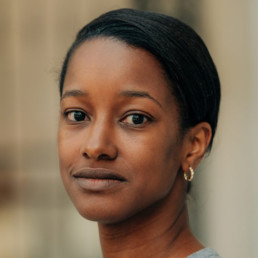
Written by Temi Akindele Barker
Inclusion Labs offers a custom programme for schools, grounded in research and best practice, but most importantly on the lived experience of students and families, particularly those from underrepresented groups.
During last year’s global BLM protests, I watched as friends and schools scrambled to find more diverse books to share with the children in their care. It struck a chord with me – the realisation that for many like myself this is a daily practice ignited from the moment you know you are bringing a child into this world. As a mother raising two ethnically diverse daughters in a dual heritage home, surrounding my daughters with true representation: female empowerment, ethnically and culturally diverse stories and role models, is a necessity. But I also passionately believe it is just as essential if you are not from an underrepresented group – it is about “windows and mirrors”.
When I think of my children, my hope for them really boils down to wanting them to know they have a place in this world. That they truly belong. That they are seen for who they are. But for that to happen they have to recognise themselves in the world they inhabit. They need to feel represented; they need to see others who look like them in leadership positions. There can’t be a ceiling to their hopes and dreams. And whilst I strive to emphasise this at home, I need the wider world to reemphasise this.
From my work with Inclusion Labs, I am acutely aware that the influence and impact a school have on a young person is profound, whether it is positive or negative. And it endures. From the moment they step into reception until their final day of sixth form, and they carry it with them long after that, shaping their perspective and expectation of the world around them. Ideas and attitudes are formed simply from who and what is placed in front of them on a daily basis. This is why representation of every form is vital.
The Decade of Diversity initiative is about representation. It is a bold and ambitious call to action and a way for schools and organisations to plant a flag in the ground on its importance. It is a visible and vocal commitment to do the work of diversity and inclusion, but significantly it is not an expectation that we do this alone. This commitment is a two-way one: Inclusion Labs and our partners are committing to supporting and guiding schools that are brave enough to plant that flag. We reached out to individuals and organisations of every kind and we all connected on this shared purpose and belief that we all have a part to play in the development of young people. “We were all children once – and we are now the parents, grandparents, uncles and aunts of children” (Kofi Annan) and by virtue of that, we must all be invested in their development. And so, a cross-industry coalition was formed, one to create inspiration and action around the Decade of Diversity pledges: 25% Diverse Literature and Diverse Governing Boards by 2030.
We asked ourselves the questions: “what needs to be done?” and “what part can we play in the answer?” We recognised the work being done by many schools, individuals and organisations and knew we must contribute to making change happen, recognising that together we are more impactful. It is a long-term commitment, a shared vision of a collective journey over the next ten years.
This coalition cannot end with words but must be about actions. And our founding partners’ commitments cover a breadth of support, everything from creating support materials; workshops and training; access to diverse role models; developing programmes; and so on. Each and every partner rallied around this initiative and committed to actions with only two stipulations: 1) they must be about diverse literature or diversifying governing boards, and 2) they must focus on supporting students and/or teachers as well as the overall school community. Crucially, our support will evolve every year in response to what is needed by our signatory schools.
To embed diversity, equity and inclusion into every young person’s educational, cultural and personal development, Inclusion Labs focuses in on our four outcomes:
Learning: what they learn, how they learn and who they are learning from;
Accessibility: having access to a diverse and inclusive community;
Balance: embedding equity – the different elements of any setting in the correct proportions;
Society: preparing them to be active participants in the world, including positive representation and interactions with those from underrepresented groups.
At Inclusion Labs, we believe that every teacher can have a role to play when it comes to leading DEI in their school. For us, the literature pledge is the moment where a school librarian can lead, and we have ensured that our partners can support them and their colleagues. From library management system organisations to independent publishers, booksellers, writer development agencies and authors – we bring them together to inspire, support and guide schools. And of course, we are fundraising to donate diverse literature directly into our signatory schools.
Recently, a student questioned the role of their school governors and why they were invisible to students. As the conversation progressed, many in the group raised the point that their school governors felt far removed from them as individuals. Our governing board pledge partners are all working together with Inclusion Labs to increase the diversity of board leadership in our schools, with outreach campaigns across industries, including alumni and families – after all, parents can do more than bake sales! In addition, we are supporting schools to create the optimum environment in which both pledges can thrive for the long term.
The Decade of Diversity pledges are for our young people. They deserve and need diverse literature and leadership, whether they inhabit a state or independent school, primary or secondary, in the centre of a city or somewhere rural. Our initiative echoes their protest whilst being about ambition and action – “we are tired of talking about this” was a phrase that was aired in many of our focus groups as well as meetings with our founding partners. From these two pledges, we believe much else flows (diverse curriculums, diverse staff, a greater sense of belonging and awareness).
We do not claim to be the silver bullet – the truth is, there is no one answer, and no one way to solve these issues. We have to apply different methods and involve as many as possible to actively work towards breaking down barriers and transforming our world to one that is inclusive for all.
Join our movement for change – let’s turn intent into action!
Find out more about the #DecadeofDiversity pledges and become a signatory school or a partner:
https://inclusionlabs.co.uk/decade-of-diversity/
Follow us for updates about this initiative and our partners:
Twitter: @inclusion_labs
Instagram: inclusionlabs
Linkedin: Inclusion Labs
#InclusionLabs #DecadeOfDiversity
Is the sketch "Gerald the Gorilla" on "Not the Nine O'clock News” racist?
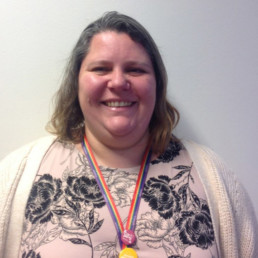
Written by Ninna Makrinov
Organisational Psychologist with over 20 years' experience in Higher Education. Currently the Chair of Governors at Water Mill Primary School.
Someone I respect, who works in education, recently shared the sketch on a social online meeting as one of the best comedy sketches of all time. My immediate reaction was physical discomfort. It felt totally inappropriate. I strongly believe this material is racist and we need open conversations about why people still find it funny. In this blog, I share the reason for my reaction. My aim is not for you to watch the sketch (although I have added a link below), but to share some points that might help a conversation if you ever find yourself in a similar situation.
About the sketch
Gerald the Gorilla is a short sketch that portrays an interview where a white professor talks about his work on communication with a gorilla. The gorilla is a white man dressed in a gorilla suit. The gorilla acts as a human and acts as more intelligent than the professor acts. The professor dismisses every comment the gorilla makes.
My reaction
I suppose it is useful to know I am white; I was born and grew up in Chile. It is also useful to know that I have been learning about anti-racism for the last 4 years. I should also point out that I share the view that we are all racist because we live in a racist society (if you want to know more about this, explore Critical Race Theory). I am not judging the individual who shared this, but the specific choice to have shared this material. I am quite sure I might have had a different reaction to the sketch had I watched at some other point in my life. I take this as a sign we can all learn to be more sensitive to the lived experience of people of colour.
When I watched Gerald the Gorilla now I reacted with disgust and disbelief. My visceral reaction was so strong that my body ached for an hour after the meeting. Even as I was experiencing this, I doubted myself. Was the material inappropriate or was I being racist for seeing the link between a man dressed as a gorilla and a black man?
My immediate actions
I did not call the sketch out as racist during the meeting. I wish I had. But I did not. Instead, I looked shocked on camera. I also sent a message off meeting to a friend who was also there to gauge if I was overreacting. They did not see anything wrong so I downplayed my reaction and was saved by the bell, as I had to leave for another meeting.
After 1 hour, I was still uncomfortable. So I Googled: Is the sketch “Gerald the Gorilla” on “Not the Nine O’clock News” racist? I did not find a response. I learnt a little bit more about the programme. I also learnt that people seemed to agree it was very funny. This did not sit right with me.
I then contacted two other great friends who are involved in anti-racism. They both thought the content was shocking and inappropriate. I am sorry I did this, as I caused them additional pain. They both have mixed race children. But I am also glad I shared it with them, as their conviction gave me the energy to take the next steps.
Why the sketch is racist
Historically, black people have been compared to (non-human) apes. This has been used as an excuse for slavery and genocide. You can find out more in this great article on the Historical Foundations of Race by the National Museum of African American History and Culture. For a more specific example, read the article “The man who was caged in a zoo” in The Guardian.
Black people are still mocked by being called monkeys. The term ‘monkey chanting’ is defined by the Oxford Learner’s Dictionary as “rude and offensive comments shouted at a black player by white people who are watching a contest, especially a football (soccer) match.”
I am focusing my reaction on racism. As this was the most obvious to me. I also noticed homophobic and misogynist comments. I might have missed others.
Being anti-racist
The day after the incident, I took action. I posted a comment on the meeting chat. I said:
“Dear all, anyone who saw my face on camera during one of the skits shared yesterday will know I was shocked. I will not explain further here. However, if you want to know more about what I felt, or just drop me a line or call. I did not raise yesterday as I did not feel comfortable about it, but I have been reflecting since and cannot leave this unsaid.
Also, if anyone else felt there was something inappropriate and would like an ally, an informal chat or even a confidential one, please let me know.“
This has sparked conversations. At various levels. Mostly very personal. I am glad that I felt safe to share. I also wonder if others, particularly people of colour, felt othered or directly offended; I imagine they might also have felt that they could not speak up. I hope the conversations keep going. I still have questions: What conversations do we need? How can we understand the lived experience of others? How can we be allies?
Moving forward – how can we prevent this happening (again)?
To finalise, my top ideas on what we can do to prevent situations like this:
- Make a point of meeting and understanding people who are not like you, whatever ‘what you’ means to you. I have learnt a lot about how judgemental I could be through my friends. Those who don’t have the same level of education, who come from different places, who look different, who disagree with my views.
- Organise conversations about race. For me, participating in the anti-racist pedagogies forum at the University of Warwick has been life changing. I have since also organised an anti-racist book club with my (white) friends. I am thinking of an anti-racist film club at work, it feels more relaxing. For those who work in Further or Higher Education, this Box of Broadcast curated list on Law, Race and Decolonisation by Dr Foluke Adebisi is a great starting point.
- Ensure your organisation’s diversity policy is clear on behavioural expectations, available support and formal procedures for complaints.
- Let people know that you support anti–racism.
- Be an active bystander, I took the step a little later than I would have wanted. I hope next time I will speak on the spot. Think back to occasions where you have acted, what happened? When you did not, what could you to when you experience something similar again?
I thought this video proves my point. You can see a family’s reaction while watching the original sketch. Spoiler alert: they were not shocked. Please beware that the contents might be sensitive (it angered me so much I wrote this blog).
Deepening and Demonstrating an Understanding of Diversity - A Governor’s Journey
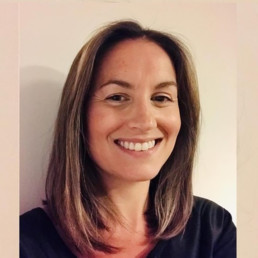
Written by Mair Bull
Former teacher and content writer for BBC Bitesize. Now works at Manchester Metropolitan University in the Curriculum and Rise teams.
When the pandemic hit, I had only been a governor for a few months. Therefore, I felt compelled during the lockdown to take advantage of the many free webinars and training sessions that became available as everyone flocked to zoom and other similar platforms.
I particularly enjoyed the sessions by Hannah Wilson and Diverse Educators – the recordings can be found here if you wish to check them out. I made notes about diversity, inclusion, decolonising the curriculum and specific ideas for governance around diversifying the board and recruitment – to name but a few!
The style of the sessions meant they felt approachable and empowering – normalising the discussions around race, culture, identity and disability. In fact, the sessions made it clear it was strange not to be challenging and questioning the current position within our schools. This was galvanised only a few months later when the world witnessed the death of George Floyd and the subsequent Black Lives Matter campaign.
Alongside these experiences, I was privileged to be part of a conversation about the importance of building a representative Drama curriculum in schools with the Royal Court Theatre, as part of my previous role with Open Drama UK. Subsequently, the network published a really useful document for teachers on building a representative curriculum, which I highly recommend exploring.
During the governors meetings in 2020, I slowly felt more emboldened to ask those questions that Diverse Educators encourages us to pose; I triggered conversations about text choices and our curriculum, about the diversity and inclusion of staff and the recruitment process to our governing board, plus many more. As Hannah has said several times, it is uncomfortable to ask those questions, but they need to be posed. The status quo needs challenging.
In December 2020 we had an Ofsted training session for governors across the Trust, and I was fired a question about the Equality Act in a mock-interview set up. I felt uneasy answering in front of a large number of senior leaders and hugely experienced governors, but I was able to outline what we had achieved in school, the provocations we had discussed, and our plans for the future.
Then in March 2021, I experienced my first real Ofsted visit (virtual) as a governor. In my interview the importance of all that layering of knowledge and small but regular confrontations of the norm, felt acknowledged, important and relevant. I was able to talk about the value of diversity, inclusion, recruitment and curriculum with more confidence and power than I would have been able to a year ago.
Like every school, we still have a long way to go but it is important to acknowledge the evolution and development from where we were before. I am really proud of the lovely school where I am a governor and the crucial progression that has been made on the journey out of special measures. It is important that I am educated and empowered to keep challenging the school to be the best version of itself as it can be. I am only small cog, but we as governors do have the power to enact change and empower others, steadily but positively.
I am really pleased to say that we are now in a position to recruit new governors and are of course, determined to broaden the diversity of the board. If you are interested in a governance role in the Cheshire region please get in touch.
Empowering Change Through Education

Written by Leslee Udwin
Activist, filmmaker, UN Women for Peace awardee, and Founder and Executive Chair of Think Equal, a global non-profit.
‘No one is born hating another person because of the colour of his skin, or his background, or his religion. People must learn to hate, and if they can learn to hate, they can be taught to love, for love comes more naturally to the human heart than its opposite’. Nelson Mandela
There is a profound chasm in our global education system – a missing dimension. How can we teach our children numeracy and literacy, yet not how to become loving, inclusive and empathetic human beings? In fact, even the most superficial glimpse of the values which bombard our children’s senses evidences a reality that needs to be effortfully countered if we are to disrupt the pretty archaic views of stereotypes which abound. Discrimination is the rule and at Think Equal we are determined to make it the exception.
So how do we educate inclusion, self-esteem (for all) and celebration of diversity? In fact, it’s so simple that if we continue to ignore it and neglect to implement the programmatic tools that exist, we should hang our heads in shame.
It’s not rocket science, it’s neuroscience. We work with our children as partners to co-create pro- social neuropathways in their developing brains. This is why our programmes work exclusively with children aged 3-6. Quite simply put, this is when the brain is ripe with neuroplasticity. By focusing on this specific age group, we can co-create pro-social behaviours with the child, and empower long-term change.
Embedding Social and Emotional Learning competencies and skills at an early enough age to be of material foundational value, is the key to unlocking the power of human kindness, inclusion, and connection, which is all too relentlessly overshadowed by divisiveness, sexism, racism, and deeply embedded bigotries.
We are all aware of the issues that are plaguing society, and now is the time to act on this awareness by implementing social and emotional learning programmes, such as that which Think Equal has designed for both classrooms and homes, at a global scale.
Think Equal has developed an innovative early years SEL programme which tackles the root cause of discrimination and violence from the outset. With input from world education and though leaders, such as Sir Ken Robinson, the Dalai Lama and the Yale Centre for Emotional Intelligence, we have designed an evidence-based, scalable, and replicable SEL programme. Think Equal’s mission is to actively transform the fabric of society through this curriculum: from a world that is apathetic, to one that is empathetic, from a society of passive living, to one of active empowerment.
We have created a comprehensive set of children’s books, one for every week of the Think Equal curriculum, accompanied by step-by-step teaching plans. We set clear outcomes for each week of the Think Equal programme. These include showing responsibility towards our planet and acknowledging the interconnectedness of all living creatures. We actively draw from the UN’s Sustainable Development Goals to expand the breadth of existing social and emotional learning programmes.
To celebrate International Women’s Day, I had the privilege of speaking with Hannah and Isa about how my work and Think Equal’s disrupts and challenges the patriarchy. One week later, the UN’s statistic, citing that 97% of women aged 18-24 in the UK had been sexually harassed, went viral. This study, drawn from the UN Women UK’s Safe Spaces Now project, resurfaced in light of the tragic disappearance of Sarah Everard. Claire Barnett, executive director of women UK, writes that ‘This is a human rights crisis. It’s not enough for us to keep saying ‘this is too difficult a problem for us to solve’ – it needs addressing now”.
This is precisely what Think Equal’s social and emotional learning programme does: starting at an early age, we anchor values of gender equality and respect in children’s mindsets. Think Equal urges you to recognize the genuine power that bringing teachers together can have in catalysing change. Teachers are the backbone of our society. It is by providing them with the training and distribution of Think Equal materials that we can really start to make a difference on our own doorstep, and as global citizens.
If you missed our chat on International Women’s Day, you can learn more about how Think Equal is leading the change in our global education system by registering for our webinar.
Now, this change can also happen with the help of parents across the globe. At the start of the Covid-19 pandemic, Think Equal worked hard to reach families in their homes. You can now order our free SEL home kits online.
Finally, you can help us catalyse this change by donating to Think Equal today. A donation of just 2 pounds will provide a child with the positive life outcomes to make a real difference in society.
Why taking part in School Diversity Week can help LGBT+ young people struggling with mental health
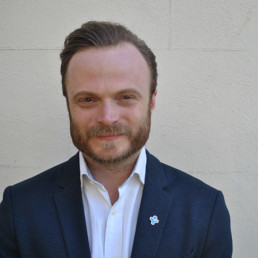
Written by Dominic Arnall
Chief Executive of Just Like Us, the LGBT+ young people's charity.
The pandemic has hit us all hard – whether it’s through job losses, being furloughed, losing loved ones, loneliness or our lives simply turning upside down. However, new independent research by Just Like Us has found that young people who are LGBT+ (lesbian, gay, bisexual or trans) are struggling significantly more.
LGBT+ young people are twice as likely to feel lonely and more than twice as likely to be worrying daily about the state of their mental health.
On top of this, one in four (25%) are facing daily tensions in the place they’re living and seven in 10 (68%) said their mental health has worsened during the pandemic, compared to just half (49%) of young people who aren’t LGBT+.
Sadly, Just Like Us’ independent research found what we suspected to be true when the pandemic began – LGBT+ young people are facing far more challenges than their peers and this is having a devastating impact on their mental health. And we found that LGBT+ young people who are also Black, disabled and/or eligible for free school meals face even worse mental health.
While we’ve all had a tough time not being able to see our loved ones and socialise like we used to, many LGBT+ young people are having to cope with living with families who may not accept or understand them, while also being cut off from their usual support networks or safe spaces where they won’t be judged for who they are.
School, while it may have been virtual for much of the pandemic, can be a fantastic source of support for young people. Sadly, for pupils who are LGBT+, school still often isn’t a place they are able to feel safe, welcome or happy being themselves.
Our research shows that half (48%) of 11 to 18 year olds say they have received little to zero positive messaging at school about being LGBT+ in the last 12 months. One in five (18%) young people say they have received no positive messaging from their school about being LGBT+, which suggests that a significant number of schools are not taking action to meet Ofsted requirements of preventing homophobic, biphobic and transphobic bullying.
It’s a real shame to see that Section 28 is still having such an impact on LGBT+ young people’s experiences of school. As adults, we could be forgiven for thinking that things have moved on – after all, we have far more legislation to protect us these days – but education still has a long way to go in being LGBT+ inclusive.
No child should feel scared to be themselves at school. And pupils in primary schools should know that there’s no shame in having LGBT+ parents or families either. Growing up bisexual, if I’d known and could’ve seen that my school accepted me, my journey would’ve looked very different.
We know that teachers and school staff are doing an incredible job in an overwhelmingly challenging environment. That’s why we are doing everything we can at Just Like Us to make taking the first step to LGBT+ inclusion in education as easy and accessible as possible.
This summer is School Diversity Week. We’re asking all primary schools, secondary schools and colleges to please sign up to take part. It’s free, you’ll get a toolkit of teaching resources for all key stages, across the curriculum, and celebrating means your pupils will know they can be safe, happy and accepted at your school.
We’ll be running free online masterclasses that you can stream, there’ll be Rainbow Friday where pupils can dress up as a colour from the Pride Progress flag, and we have many new resources for staff to inspire your celebrations. LGBT+ young people are facing disproportionate mental health challenges and need to know who they are is not something to be ashamed of – please sign up for School Diversity Week and celebrate with us and thousands of schools and colleges taking part 21-25 June.
It is about time Initial Teacher Training and Education embraced diversity and inclusion
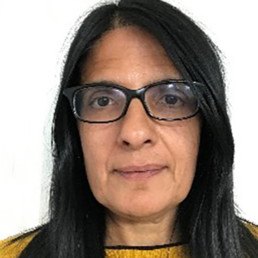
Written by Davinder Dosanjh
Executive Director Leicestershire Secondary SCITT
Thirty-five years in education as a teacher, senior leader, Her Majesty’s Inspector, senior lecturer, teacher educator, I had hoped we would have moved much further forward when we talk about Diversity, Equity and inclusion. I am still not seeing Initial Teacher Training and Education embracing the diverse voices and representing BAME. The decision makers and those on the working groups advising the Department for Education, are the same white faces, from the same organisations.
Policies and initiatives such as the Core Content Framework, Early Careers Framework, have missed opportunities to embed diversity. We are still wedded to the Teachers’ Standards. Teacher Standard 3 and Part 2 of the Teachers’ Standards make no strong statements about embedding diversity, equity and inclusion. The Core Content Framework and Early Career Framework opportunities have merely amplified the Teachers’ Standards into ‘Learn that..’ and ‘Learn how to..’ statements. Examples of systemic racism. These frameworks are a minimum entitlement, so they imply diversity is not part of that prerogative.
Those that train teachers are predominantly, white and middle class. I have been involved with teacher training at a university and a SCITT. Whilst working with both organisations I have asked and sought to be on national bodies which represent these sectors. Never managed to get through the red tape and procedures which maintain the institutional racism. I am just as qualified, have the experience and the track record. Still working out what I am doing wrong or to flip it the other way, what are these national organisations doing which perpetuate these barriers? You have got to be voted on, seconded and then your mates vote you in because you have had the time to network with them. Time to re-examine the criteria for national bodies, working parties, time to have a transformation, give others a voice.
If you have been on a national working group, advisory once, you are to be commended, then pass the baton onto someone else. Insist these groups are diverse and heard at a strategic level.
We need to undertake a more wide-ranging review at the trainee’s journey from pre-application, application, interview, the programme and actual training experience. We need to ask ourselves some critical questions. Then follow the sequence of auditing, action planning, accountability and assessing impact. A starting point are some self-assessment questions below:
Pre-application
Is the marketing diverse and showing a range of positive diverse role-models?
Are we appealing to a diverse range of communities, using a range of networks (Asian radio) not just the traditional career fairs, university, school events?
Application
Who interviews?
Are all interviewers trained beyond safer recruitment, such as Diversity training?
Do we interrogate the data? (those made an offer, rejected, reasons why)
Teacher Educator and Placements
Who are the teacher educators?
Are they diverse?
Can we talent spot and seek out diverse teacher educators?
Are we carefully matching the right teacher educator to the trainee?
How do we deal with any issues of discrimination?
Curriculum
What is the golden thread of Diversity, Equity and Inclusion?
Where is it? What is it?
Who is delivering/facilitating?
Are the role models diverse?
Do we share the mic and encourage allyship?
Evaluation and Quality Assurance
Are the trainee’s voices being heard?
What questions are we asking about Diversity, Equity and Inclusion?
Governance
Is the Steering/Partnership Group diverse?
How can we seek out colleagues from our partner schools to be part of the group?
Is Diversity, Equity and Inclusion a regular agenda item?
I would hope we have moved forward and that any teaching training provider, whether school or university could not ignore a trainee being called a ‘paki’ by pupils like I was. Despite me raising objections, I was told to get on with it, despite this being a regular occurrence. We have policies and procedures to formally report such incidents which were not in place when I undertook my training. More importantly, great communities such as Diverse Educators and BAMEed Network.
I am proud to say the Leicestershire Secondary SCITT has increased the diversity of its cohort from 29% in 2015 to 49% in 2020.

